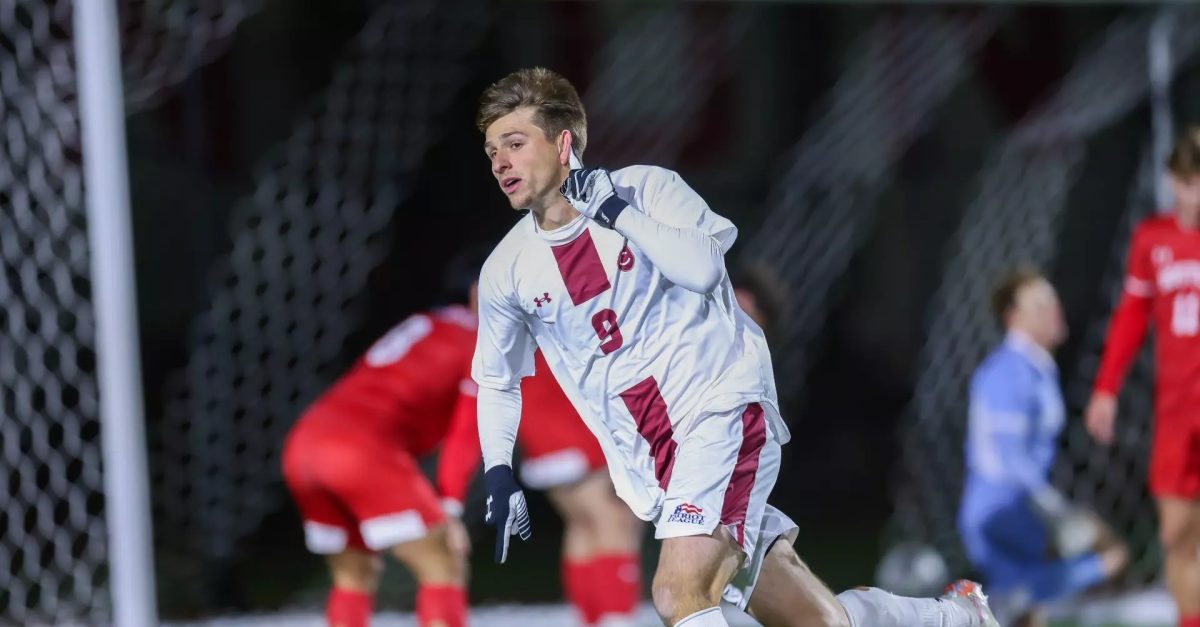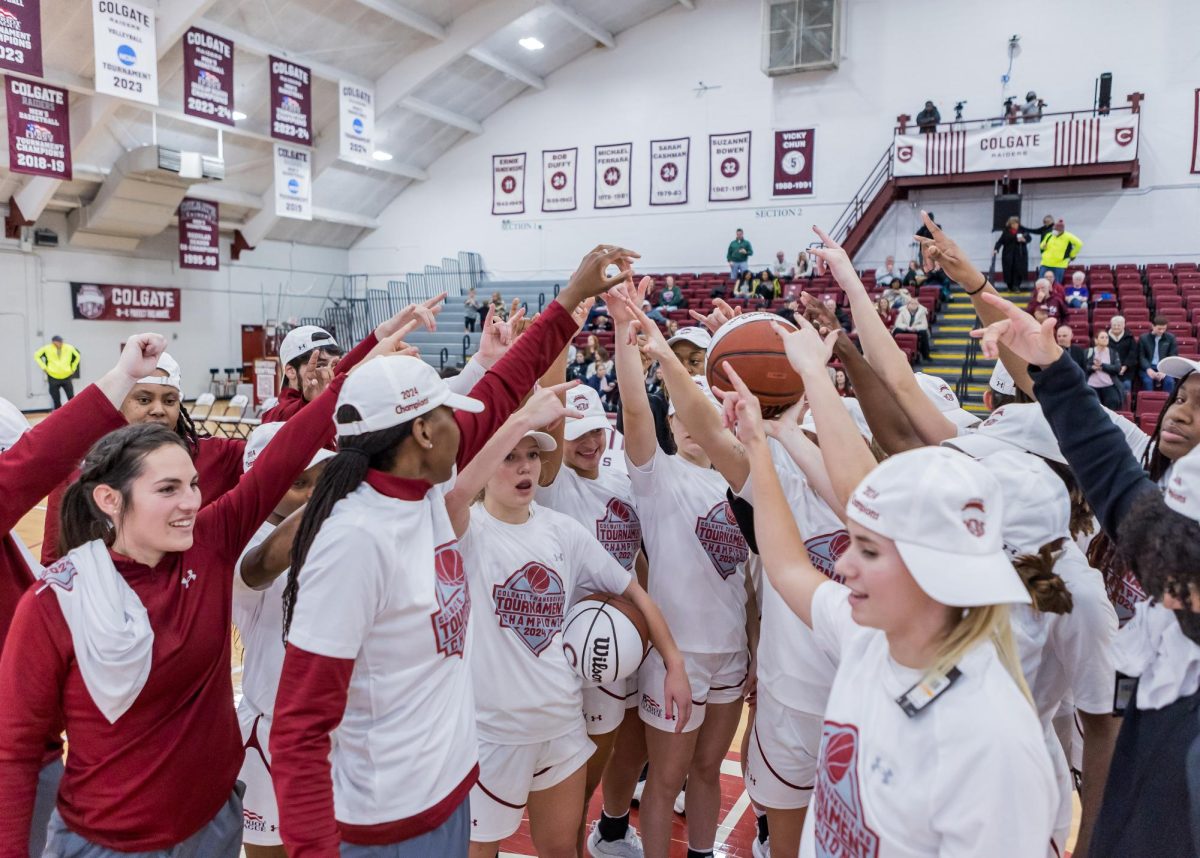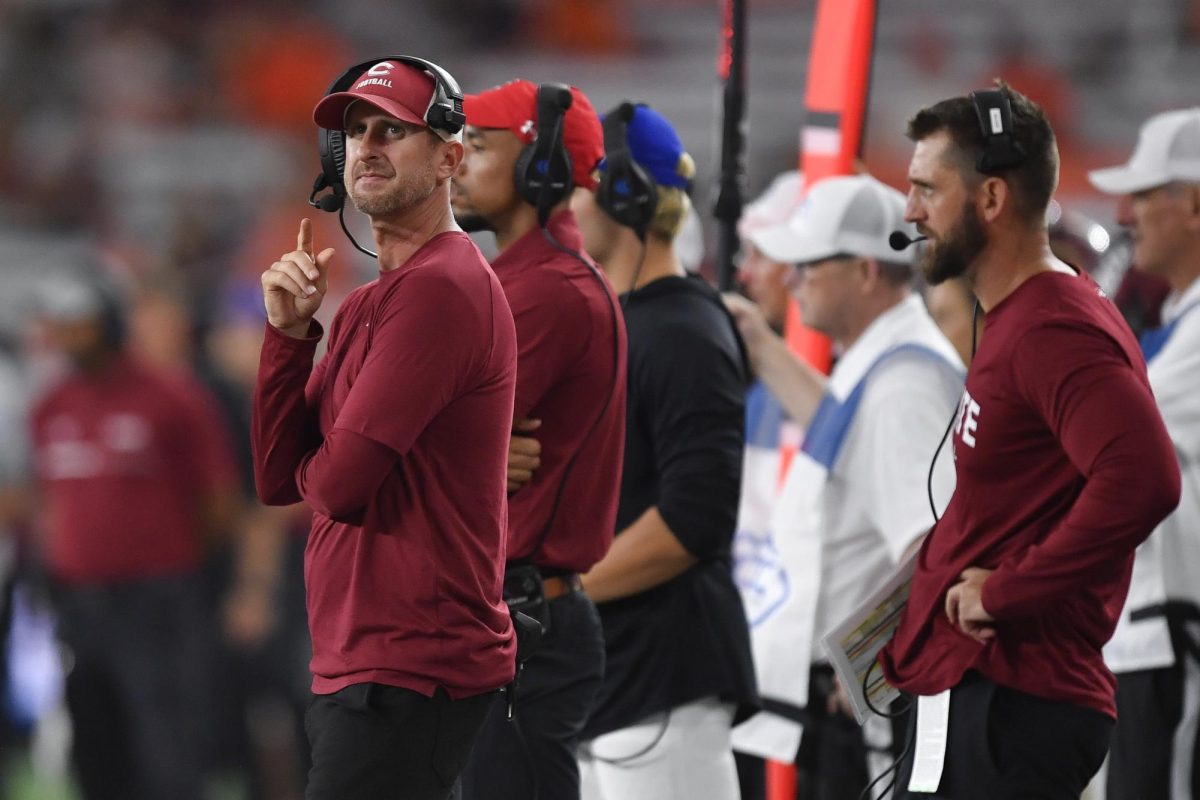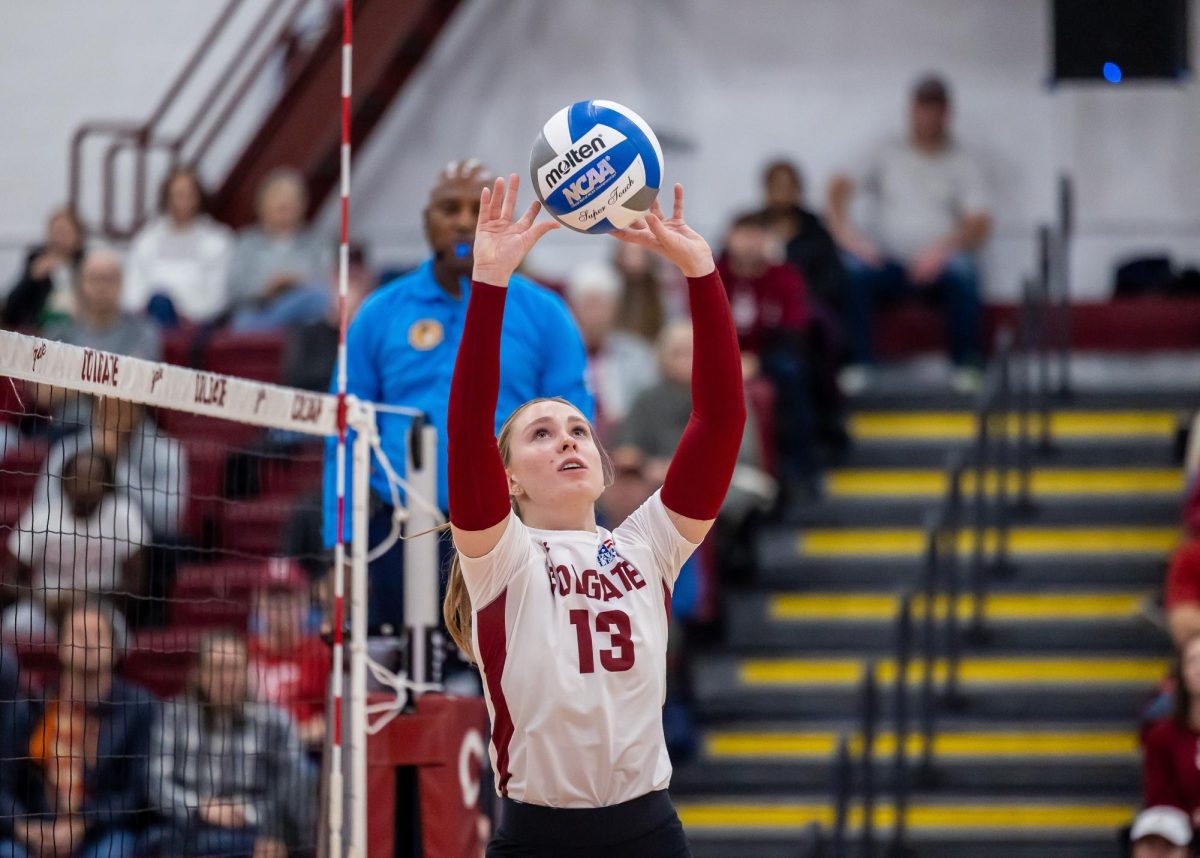Although Colgate University’s field hockey team has struggled to win Patriot League games for the past couple of seasons, the team finally broke away from this precedent, and it hopes to accomplish even more next season.
The team ended the season with a 1-5 conference record. The one win against the College of the Holy Cross marked the first Patriot League win since the 2020-2021 season.
Junior Dani Palmer, a forward and captain, spoke of the team’s struggle with consistency regardless of whether they win or lose.
“We would lose games we weren’t supposed to, and we would play really well against teams that were projected to be better than us, so consistency throughout the past three years that I’ve been here has definitely lacked,” Palmer said.
During the season, most of their games occurred back-to-back on weekends. It became a pattern for the team to either win or simply play stronger in the first game of the weekend compared to the last.
Junior Grace Schmelzinger, a center-midfielder, attested to the reality of this pattern.
“At a certain point in the season, we started to realize that our second game of the weekend wouldn’t be as strong as the first game. It makes sense because you work really hard the first game, and then you have to do it all again 48 hours later,” Schmelzinger said.
When the team was successful this season, Palmer believed that their collective mindset contributed to their strong performance.
“I think it was really everyone having their heads in the same place, and I think a lot of the times in the games we’ve won, we’ve played our style of hockey, and we didn’t really think about how they were playing,” Palmer said.
Sophomore Morgan Willis, a right-forward, also commented on when things connected for the team. She explained how when the team connects as whole and not just in parts, they are able to be most successful.
“I think sometimes it gets split into defense, midfield and forwards; everyone works in a unit with themselves. In those games that everything went right, I think it was because we were playing together as a team and not units. Everyone worked so well together,” Willis said.
The reason why players worked well in the moments that they did is due to the focus on improving the team culture this season. Palmer commented on this improvement.
“Our team culture is definitely the best it’s been since I’ve gotten here by far. We all really love each other and play for each other,” Palmer said.
Willis added that they put in effort before the season started to make sure everyone on the team knew that their individual importance contributed to the success of the whole team.
“I think that our team got much closer so much faster. Everyone felt much more included this year. We worked really hard to make sure that everyone felt like they were an important part of this team and that the team couldn’t function without them,” Willis said.
Willis further explained that the team this season grew through team culture meetings facilitating honest discussions and conversations.
“This year we also had culture meetings as a team that were separate from field hockey. I think that helped us work through things and get to a place where we could be as close as we could be. We worked on having those hard conversations that sometimes you need to have in order to get better,” Willis said.
The emphasis on a stronger team culture made for stronger performances, especially in their close game against American University, a higher seed team in the Patriot League.
“I definitely think that the American game was one of my favorite memories because [Willis] and I both played forward together all season. That was the game when we first really connected, and that connectedness carried into the rest of the season, and we had a really fun time playing with each other,” Palmer said.
Willis spoke of this memory with Palmer with a similar level of pride, despite American ultimately winning the game.
“Although it was tough in the moment, looking back, that game was so fun. It was the most fun I had playing field hockey in a long time. It made me really love the sport more than I already did,” Willis said.
After playing American in early October, the team went on to play Holy Cross later that month. Schmelzinger commented on what it was like to finally win a Patriot League game after a four-year drought.
“That minute when the clock ticked down to zero and you knew that it was final, you could just watch the whole sideline sprint towards our goalie. You could feel the energy; it was palpable,” Schmelzinger said.
Looking beyond this season, Schmelzinger identified what the win against the Crusaders means for the program.
“We’re continually evolving as a program. I think I’ve watched us have a steady increase in discipline. By the time we got to Holy Cross, I think that showed because we were all really ready for that game and hungry to win it,” Schmelzinger said.
Willis also believes that this win will provide them the confidence to tackle opponents next season.
“After winning against Holy Cross this season, I think that the little taste of what it’s like to win a big Patriot League game will hold us over [until] next year,” Willis said.
Willis even elaborated that this win means that they can position themselves no longer as underdogs within the conference. This win has effectively allowed them to redefine their identity as a team.
“We’re sick of being called the underdogs and not being expected to win anything,” Willis said. “Especially in the Patriot League, I think that people look at us and don’t see us as a strong program, but we’re definitely on the ups from that. Our team is working really hard to get rid of that title because we’ve had it for a while.”
Schmelzinger ultimately identified that they have the necessary components to start winning more conference games in the future. It is only a matter of investing in the program now so that it can be a force to reckon with as future players join.
“I think that we have the individuals, team, talent and drive to make it work. I’ve never seen a group of individuals who’s more willing to put the work in than we have right now. I think we’re going to have incoming first-years next year who are going to continue that legacy,” Schmelzinger said.








